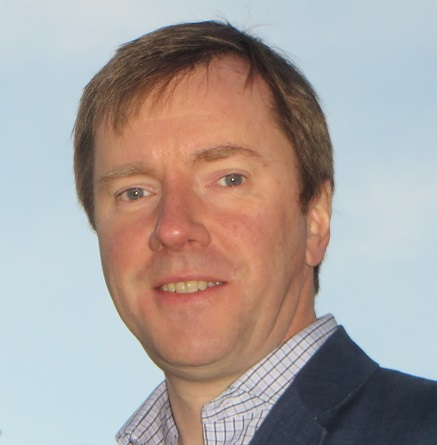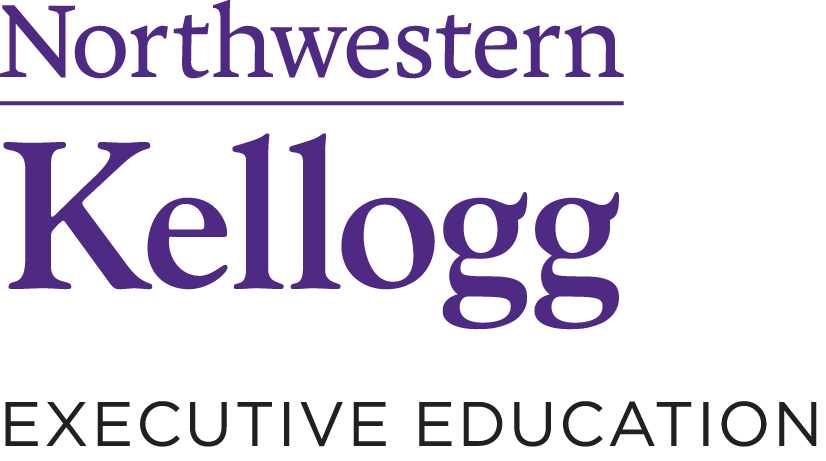- Learning
The Management-Leadership Shift
Professor Diana Cordova on the critical thinking behind Kellogg’s new Enterprise Leadership Program
Most top tier business schools have as their flagship executive education program an Advanced Management Program or AMP, and Kellogg Executive Education at Northwestern University north of Chicago is no exception―or has been no exception. This year it is acknowledging that the content of this three-week long, intensive program for senior executives transitioning into C-Suite roles, is actually more focused on leadership issues than management ones, and is re-naming it accordingly the Enterprise Leadership Program.
This is not so much a radical departure as a wholesome recognition of reality. When executives in large organizations find themselves in high-level roles it is their mindsets and behaviours that are most likely to need support and adaptation, not their ability to manage operations―which will have been well-tested in the years leading to their promotion. Diana Cordova, Clinical Professor of Executive Education at Kellogg, one of the three full-time directors of the flagship program, notes that, “Our goal is to focus on the leadership essentials that senior executives need to be able to lead at height and scale. It's about how do you make the transition from being a good, proven, functional leader, to becoming an enterprise leader.”
Cordova is a social psychologist by training and now focuses on senior leadership, in addition to her responsibilities with the Enterprise Leadership Program she is also Academic Director of the Kellogg Executive Leadership Institute (KELI) which offers a range of programs for those transitioning into senior leader and Board roles, including on Governance, Catalysing Growth and specific programs for Chief Marketing Officers, Women Leaders and Family Enterprise Leaders.
The Enterprise Leadership program is founded on five core elements, which are designed to ensure participants are able to scan the whole breadth of their organization’s horizon, rather than just focusing on their particular departments. “The sweet spot of this program is how do you make that transition? How do you adopt that enterprise mindset? How do you learn to set strategic direction, vision, initiatives for the organization as a whole and not just your function or your unit. How do you identify connections, challenges, opportunities for the organization as a whole? How do you learn how to think with depth and scope and breadth for the good of the organization?” says Cordova.
The three-week program is hugely intensive, and covers a lot of ground. Under-pinning the range of content is a holistic, systemic approach to managing oneself. Cordova is clear that “good leadership is about building good, effective routine. We stress that from day one on campus they need to practice being more self-aware, more reflective. We introduce journaling. We start every morning with an individual reflection followed by a group reflection. Every day we try and set them up in this routine. Being a leader at this level requires resilience, so we're trying to also get them to pay more attention to exercise and good nutrition. You won't see unhealthy foods here at the Allen Centre!”
Setting these basics is the foundation for shaping the mindset and behaviours that will make the long-term impact. She is very targeted on ensuring these are habits everyone will have got into by the end of the three weeks. “The way we stress it is, you're here to take a really close look at how you're doing things to establish good routines, good habits, that will really last you a lifetime. You're starting with probably 25-30% of our participants already doing those routines, so for them, it's a reinforcement. Then you have some others that we need to get in to that routine, but you would be amazed at what can be accomplished in three weeks of beginning to set them on a path of good nutrition, exercise, building up resilience. For them, it's a new way of thinking. It's a new approach.”
If this is the underlying foundation of the three-weeks, it is the content that builds on the five leadership essentials that adds the depth and structure to it. The five elements are:
- Enterprise Mindset
- Anticipatory Focus
- Communication and Influence
- Talent and Culture
- On-going Self-development
These are much more about the intangible ‘who’, ‘why’ and ‘how’ of leadership, than the more directive ‘what’ that participants may have been exposed to in programs at a more junior level. The program leverages its location in the Allen Center at the Northwestern University campus on the shore of Lake Michigan―a haven of academic calm and state-of-the-art facilities―with being only 30 minutes from downtown Chicago with the richness of experiences that can bring.
Such as a day spent at the world-renowned ‘1871’ start-up incubator, where participants are immersed in innovation strategy, speaking with young entrepreneurs across a breadth of sectors, facilitated by Kellogg faculty who have close associations with the companies. Or where they are pushed far out of their comfort-zones in a session with Northwestern’s School of Music orchestra under the instruction of the School’s Director and accomplished conductor, Stephen Alltop.
These and other similar experiences are designed to expand the participant’s thinking to encompass ‘the whole’ and to mirror the wider remit that those in the C-Suite have to embrace. “Most of them come here knowing that they need to do something different, but they don't know exactly what and how to take that big step,” says Cordova. “We talk a lot about disruption and disrupting yourself before somebody else does it to your organization. It's about identifying opportunities. It's about how to innovate. It's about how to set the conditions within your organization, within your teams, to allow them to be willing to experiment. It's okay to experiment.”
In a business environment that is constantly evolving, it is important that the programs evolve constantly too. For Cordova and her co-directors the shift to a fulsome leadership focus has allowed them to dig deeper into this material, experiment and improve―just the concepts and actions they are looking to imbue in their participants.
The Kellogg School of Management at Northwestern University is recognized globally as a pioneer in general management education that offers innovative academic opportunities for today’s leading thinkers
ARTICLES YOU MIGHT LIKE
VIEWPOINT
For Thomas Misslin, transformation rather than training is the aim of executive education at emlyon business school
DEVELOPING LEADERS QUARTERLY MAGAZINE AND WEEKLY BRIEFING EMAILS


































